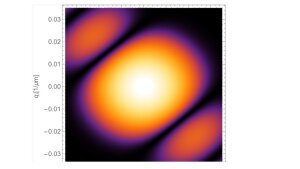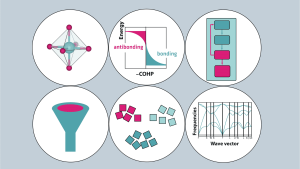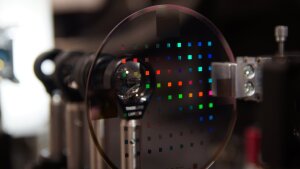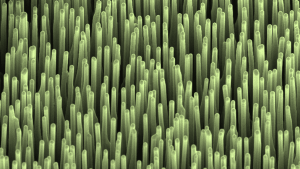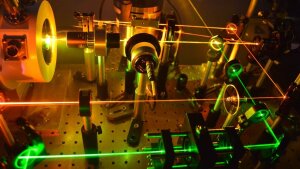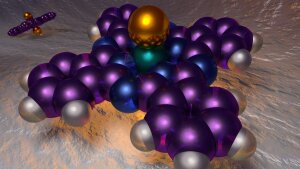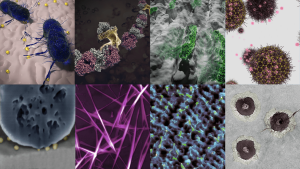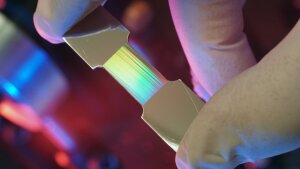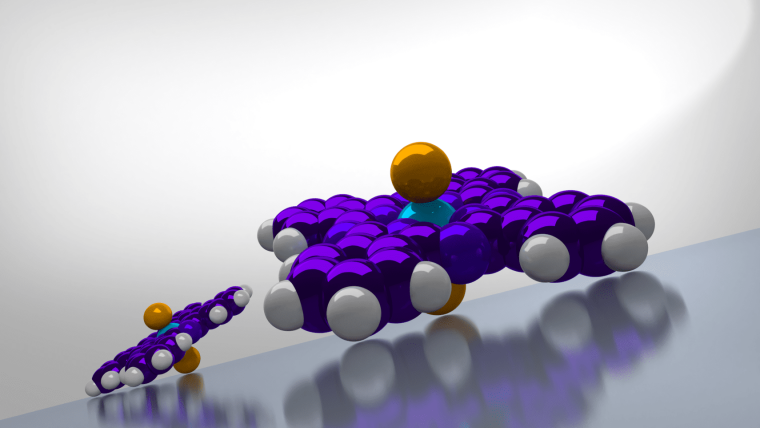
Specialise in Solid State Physics and Material Science
The specialisation in solid state physics and material science of the Faculty of Physics and Astronomy (PAF) at Friedrich Schiller University (FSU) Jena takes place mostly at the Institute of Solid State Physics (IFK) by offering exciting lectures, seminars and small projects. During that time, you can get to know our researchers and research groups and learn about the scientific practise on a day to day basis at our faculty and develop fundamental skills as a researcher on your way to your Master's degree.
Here, we want to offer you an overview over the different research areas and the groups working in them, as well as a small glimps into the contents of the lectures during your specialisation. More detailed information can be found on the Curriculum page of the IFK.
Research Groups and Research Focus
The research at IFK focuses on the dependence of properties of condensed matter and its structure, and the synthesis and modification of various systems. In particular, we investigate photonic nanomaterials, semiconductors and 2D materials, and organic materials in collaboration with the Otto Schott Institute of Material Science (OSIM) and the Institute of Condensed Matter Theory and Optics (IFTO).
Study the Theory of Solid State Systems, Solid State Optics and Quantum Information
At the IFTO, our research groups focus on the description of condensed matter systems and their properties in terms of classical electrodynamics, quantum and quantum information theory and other methods. Dive into non-linear optics and optical properties of semiconductors, or learn about optical quantum information and quantum many-body systems, as well as materials chemisty.
Investigate Systems of Condensed Matter Hands-On
Learn about the properties of nano-scale materials and systems, and study their properties when interacting with light and ion beams, thin films of organic molecules with semiconducting properties, and the intricate dynamics and non-linear optics in 2D materials and electronic devices with our research groups at IFK.
Learn about Surface Science and 2D Materials
The aim of these IFK research groups focuses on understanding thin films of organic molecules with semiconducting properties, and the intricate dynamics and non-linear optics in 2D materials and electronic devices. Utilising a very diverse set of experimental methods, ranging from electron diffraction to microscopy and spectroscopy, they investigate the properties of materials in relation to their structure.
Study the Diverse Applications of Biomaterials
These groups at OSIM focus on the application of biomaterials, bio-inspired materials and laser materials processing in the fields of biomaterials, energy and environmental technology, utilising modern spectroscopy and microscopy methods.
Learn about Computational Methods in Materials Science
The Computational Material Science Group is part of the OSIM and focuses on the application of existing methods as well as the development of new methodology for material development, and the understanding and prediction of properties as responses to external stimuli.
Contents of the Specialisation in Solid State Physics and Material Science
Recommended Study Plan
The recommended study plan holds for the specialisation in solid state physics and materials sciences and varies slightly depending on the cylce of your enrolment with respect to the winter or summer term. Depending on your preferences, you can personalise your lectures to fit your aspirations as good as possible.
Requirements
During your Bachelor's programme, you should have attended a mandatory lecture on solid state physics with 8 ECTS (or comparable) with key concepts as follows:
- Structure
- Dynamics of the lattics
- Electrons in a solid state system
| Semester | Pflicht | Wahl |
| 1. Wintersemester (1. or 2. Semester MSc) |
Fortgeschrittene Quantentheorie (8 LP) F-Praktikum (4 LP) |
Festkörpertheorie |
| 1. Sommersemester (2. oder 1. Semester MSc) |
F-Praktikum (4 LP) Oberseminar FK (4 LP) |
Vertiefung Festkörperphysik (siehe unten) |
| 3. Semester | Einführung wissenschaftliches Arbeiten (15 LP) Projektplanung (15 LP) |
|
| 4. Semester | Masterarbeit (30 LP) |
Specialisation Lectures
The lectures listed below are a selection from the curriculum of the master's programme. More information can be found here.
- Organische und anorganische Halbleiter (4 LP, Fritz)
- Oberflächenphysik (4 LP, Fritz)
- Nukleare Festkörperphysik (4 LP, Ronning)
- Nanomaterialien und Nanotechnologie (4 LP, Ronning)
- Nonlinear optical properties of solids (4 LP, Soavi)
- Optische Eigenschaften von Festkörpern in starken Feldern (4 LP, Schmidt)
- Optische Eigenschaften von Festkörper und Festkörperschichten (4 LP, Wendler)
- Ionenstrahlmethoden (4 LP, Wendler)
- Optoelektronik (4 LP, Schmidl)
- Supraleitende Materialien (4 LP, Seidel)
- Einführung in die Elektronik (4 LP, Forker)
- Vakuum- und Dünnschichtphysik (4 LP, Seidel)
- ...
- ... sowie die Wahlfächer des OSIM.
